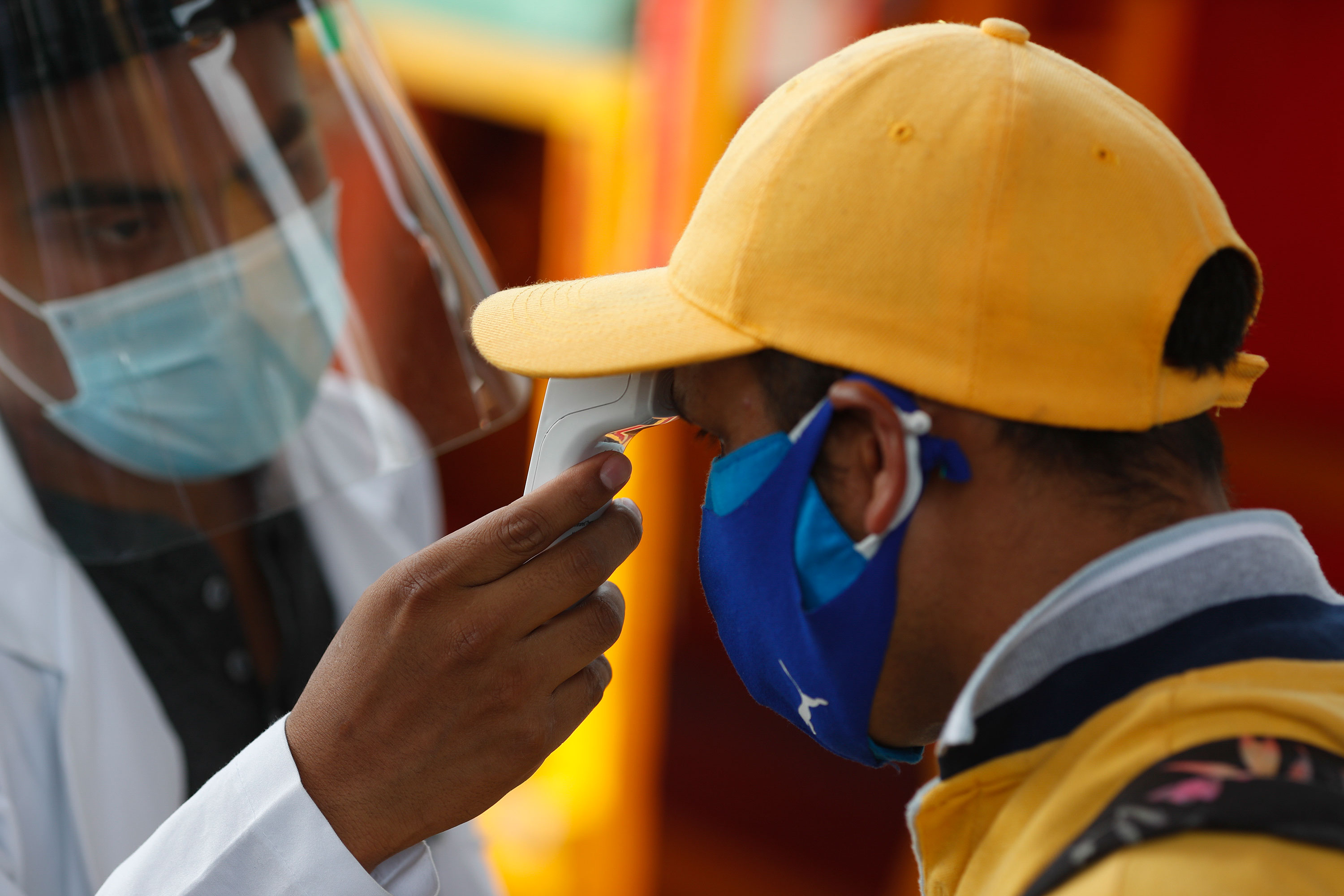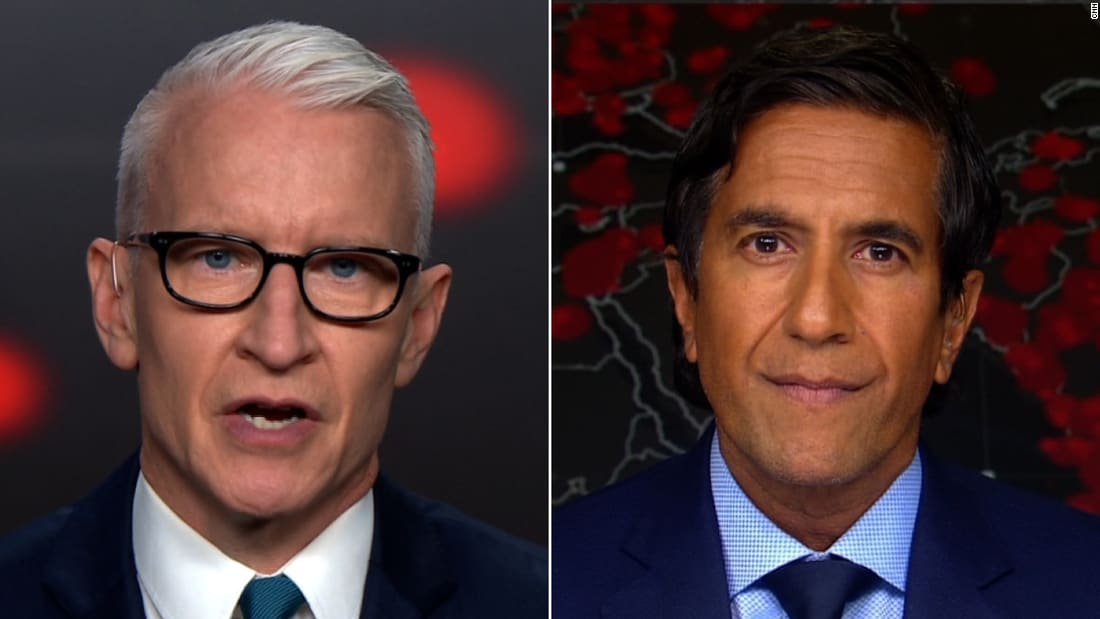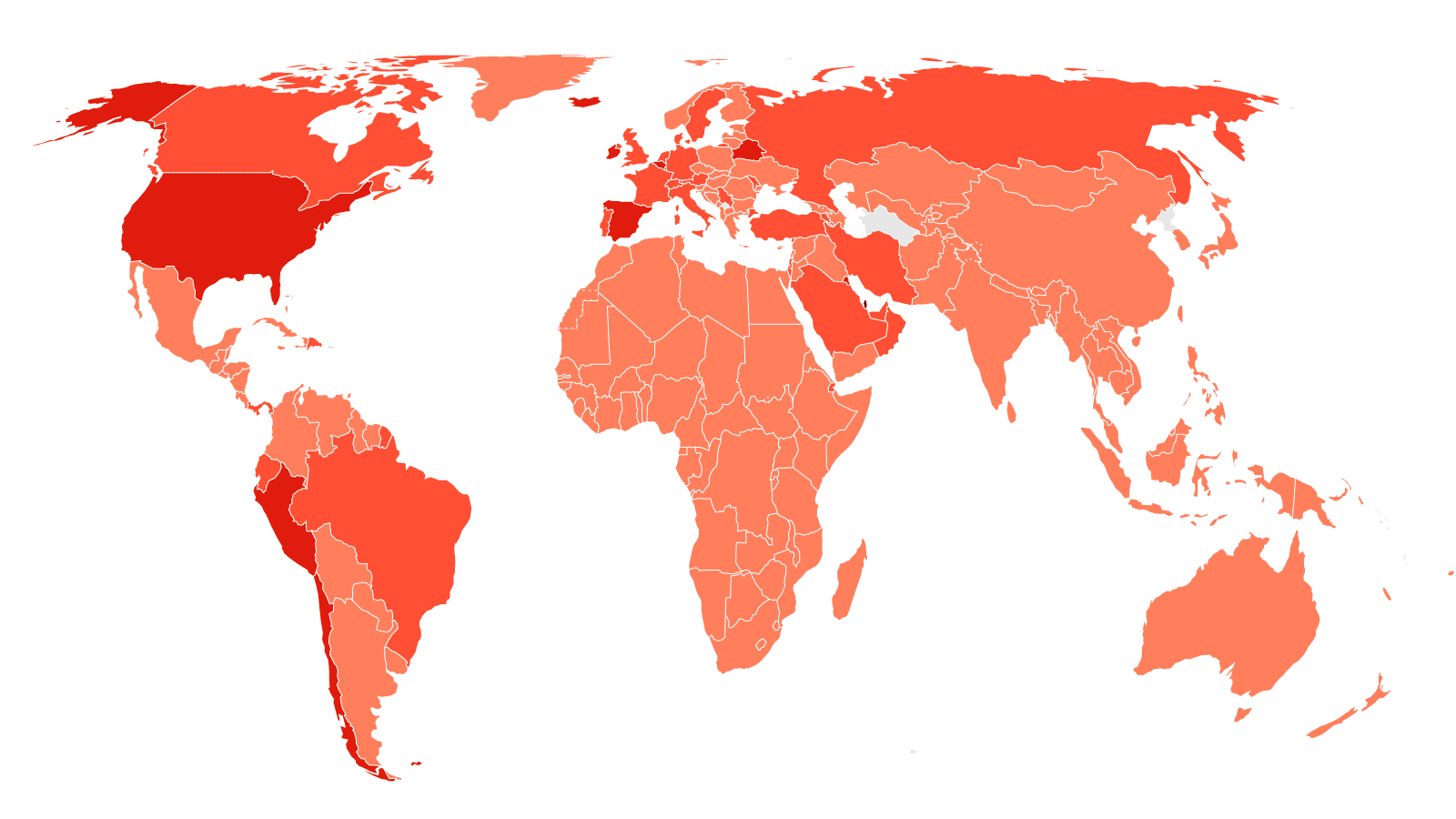WHO program to speed access to vaccines but it needs more money
A World Health Organization program aimed at speeding global access to coronavirus tests, treatments and vaccines needs $35 billion, director general Tedros Adhanom Ghebreyesus said Thursday.
The Access to Covid-19 Tools (ACT) Accelerator, launched in April, is a partnership with organizations including the European Commission, to “catalyze the development of and equitable access to vaccines, diagnostics and therapeutics,” Tedros said.
But it needs more funding.
And the program is threatened by bilateral vaccine deals and vaccine nationalism, he said.
“We need to rapidly scale up our clinical trials, manufacturing, licensing and regulation capacity so that these products can get to people and start saving lives,” Tedros said.
European Commission President Ursula von der Leyen said new solutions were needed "for prevention, testing and treatment of Covid-19."
"We all know we need them fast. We need them for all those in need, anywhere,” she said. “And we need them on affordable conditions.”
India has one of world's lowest Covid-19 mortality rates. But the numbers don't tell the whole story
From CNN's Jessie Yeung and Manveena Suri
 Relatives wearing protective suits as a precaution lower the body of a covid-19 victim for burial at a graveyard in New Delhi, India on September. 3. Manish Rajput/SOPA Images/LightRocket/Getty Images
Relatives wearing protective suits as a precaution lower the body of a covid-19 victim for burial at a graveyard in New Delhi, India on September. 3. Manish Rajput/SOPA Images/LightRocket/Getty ImagesFor months, India has been struggling to control the coronavirus pandemic with limited success.
The country of 1.3 billion people has the second-highest number of cases globally (more than 4.4 million), and the third highest number of deaths (over 75,000), according to Johns Hopkins University.
But India's reported mortality rate -- calculated by the number of deaths per 100 confirmed cases -- is surprisingly low compared to other countries with high infection rates.
India's Covid-19 mortality rate stands at 1.7%. For context, the same rate is about 3% in the US, 11.7% in the UK, and 12.6% in Italy, according to Johns Hopkins University.
The Indian government claims India's lower death rate is a sign of its success in handling the crisis, and has used the figure to support its decision to lift some coronavirus restrictions.
But some scientists in India warn that the numbers are incomplete and misleading -- and that relying on them to reopen the country could make matters worse.
So what's behind the numbers?
While the number of coronavirus cases in India may be rising, the mortality rate is dropping.
Some experts warn that the data is full of gaps: India has a weak, underfunded public health infrastructure, and for years it has failed to accurately record the deaths of its own citizens. Even when India isn't facing a pandemic, only 86% of deaths nationwide are even registered in government systems.
India isn't counting all Covid deaths: There's also the issue of undercounting Covid deaths due to insufficient testing and poor medical coding. India has stepped up its testing, but it still has one of the lowest rates of testing per capita in the world. Even if a Covid-19 patient tested positive before dying, they might not be counted as a Covid-19 death if they had other preexisting conditions, such as diabetes or cancer.
The rise in testing creates a misleading death rate: With more tests, authorities are detecting more cases. But the mortality rate is measured against the number of total confirmed cases -- so when cases rise, the rate will go down even if the number of deaths remains the same.
Daily deaths are actually rising: Even if the mortality rate is declining, it doesn't necessarily mean the number of deaths is dropping. Deaths have jumped from around 750 a day at the start of August, to more than 1,000 a day this week.
Read the full story:
CDC says Covid-19 death rate is under 1% for everyone but people over 70
From CNN Health’s Maggie Fox
The US Centers for Disease Control and Prevention said Thursday it had changed the way it was reporting death rates for coronavirus, and will now report the infection fatality ratio by age.
It’s all still based on approximations, and as part of the update the CDC also estimates it’s missing most cases of coronavirus in the US -- by a factor of 11.
According to the updated “best estimate” numbers posted on the agency’s website:
Transmission time: Under the best estimate scenario, it takes about six days, on average, for people to develop symptoms after they’ve been in contact with the virus.
ICU care: Just below 24% of people under the age of 50 who are hospitalized will need ICU care, the CDC estimates. This rises to 36% of people 50 to 64, and 35% of people 65 and older.
Fatality rate for those hospitalized:
Not only are the numbers an estimate, but reports of death rates lag by weeks, the CDC said. On average, it takes about 45 days for a coronavirus death to be reported.
Asymptomatic cases: The CDC calculates that 40% of cases are asymptomatic, and that these people without symptoms are about 75% as infectious as people with symptoms, although this is “highly uncertain.”
Infection fatality ratio is one of several ways of reporting mortality rates. It’s calculated by dividing the number of deaths by the number of actual infections -- and since the true number of coronavirus infections is not known, it is by necessity an estimate.
Birx urges college students to get tested, wear masks to protect against Covid-19
From CNN Health’s Shelby Lin Erdman
White House Coronavirus Task Force coordinator Dr. Deborah Birx on Thursday urged college students to get tested for Covid-19 and to wear masks.
“To every student out there, please get tested,” Birx said during an interview with CNN affiliate WTVD in Raleigh, North Carolina.
“It is really critically important because I know that if you know that you're positive, that you will protect others for those 14 days, and you'll really ensure that you don't spread the virus.”
Birx said she’s been traveling around the country talking to governors and heads of universities about how to keep people safe at school, including in North Carolina, which has seen a number of recent coronavirus clusters on college campuses around the state.
And taking classes online does not mean students will be isolated, she noted.
“Many of those college students, even though they're online, are living in the college town, and they're living off campus, in many cases,” she said.
“How do we get information to them, how do we encourage them to be tested, how do we encourage them to protect the vulnerable members of the community, to really ensure that they are wearing masks and when they’re in the community, they're wearing masks and protecting those around them and I think that's really going to become very key,” Birx said.
Watch the entire CNN coronavirus town hall
CNN's Anderson Cooper and Dr. Sanjay Gupta hosted a global town hall answering your questions about what the future holds for the fight against Covid-19.
They were joined by guests including National Institutes of Health director Dr. Francis Collins, Dr. Leana Wen, and Terrance Bannister, who lost his 28-year-old cousin to coronavirus just days after she was diagnosed.
Watch here:
Time to "hunker down" to get through fall and winter, Fauci says
From CNN Health’s Shelby Lin Erdman
Coronavirus is not going to ease up and is in fact likely to worsen again in the fall and winter in the United States, Dr. Anthony Fauci, the director of the National Institute of Allergy and Infectious Diseases, said Thursday.
“I just think we need to hunker down and get through this fall and winter because it's not going to be easy,” Fauci said in a talk with doctors from Harvard.
Fauci said that as fall approaches "and we do more indoor things, we're likely going to see upticks in Covid-19."
The US is still reporting about 36,000 Covid-19 cases a day right now, which is better than mid-August when the number was almost 80,000 a day. But it’s still too high, Fauci said.
“I keep looking at that curve, and I get more depressed about the fact that we never really get down to the baseline that I'd like,” he said.
Fauci predicted the US will continue to see coronavirus surges in some places.
Fauci said it’s hard to predict at this point how influenza may play into the pandemic this winter. He pointed to Australia’s mild flu season this year because of Covid-19 mitigation efforts such as mask-wearing and social distancing.
“What I would like to see is keeping the lid on, keeping the baseline down until we get a vaccine,” he said. Fauci, as he has said before, believes a coronavirus vaccine will be available by late this year or early in 2021.
“I think that’s going to be the thing that turns it around,” he said.
Mexico reports nearly 5,000 new Covid-19 cases
From CNN's Natalie Gallón in Mexico City and Samantha Beech in Atlanta
 A worker gets his temperature taken prior to being tested for Covid-19 in Mexico City, on Thursday, September 10. Rebecca Blackwell/AP
A worker gets his temperature taken prior to being tested for Covid-19 in Mexico City, on Thursday, September 10. Rebecca Blackwell/APMexico's Health Ministry reported 4,857 new Covid-19 cases and 554 new virus-related deaths on Thursday.
That brings the total number of cases confirmed in the country to 652,364, including at least 69,649 fatalities.
The latest figures come as Mexico’s government responded to the pausing of the AstraZeneca vaccine trial.
What happened: The company put global trials of its coronavirus vaccine on hold this week over an unexplained illness in one of the volunteers. Mexico was a participant in the phase 3 trials of that vaccine candidate and is still offering volunteers for other vaccine trials.
The reaction: Mexico’s Foreign Secretary Marcelo Ebrard said in a statement Thursday that Mexicans can be “assured” of a vaccine against the coronavirus in future. "We are not betting -- as we say -- all the eggs in one basket," he said, adding that Mexico is involved in several vaccine projects.
Mexico has the world's fourth-highest coronavirus death toll after the United States, Brazil, and India, according to Johns Hopkins University. It is ranked seventh by JHU, in terms of the highest Covid-19 case numbers in the world.
More than 28 million people have been infected with coronavirus worldwide
From CNN’s Samantha Beech in Atlanta
At least 28,054,396 people globally have been infected with the novel coronavirus since the pandemic began, according to the Johns Hopkins University Coronavirus Resource Center.
JHU also reported that as of 10.30 p.m. ET on Thursday, 907,980 have died around the world.
The United States is the worst affected country, with 6,397,132 cases. India, Brazil and Russia follow.
The US also leads the world in terms of the most deaths attributable to the coronavirus, reporting a total of 191,769 fatalities.
CNN is tracking worldwide coronavirus cases here:
AstraZeneca says it could still have vaccine approval by end of this year, even with recent setback
From CNN's Jen Christensen
AstraZeneca should still be on track to have a set of data to submit for approval of a Covid-19 vaccine before the end of the year, despite having to pause the trial because of an illness in a volunteer, company CEO Pascal Soriot said Thursday.
The company has been working with Britain’s University of Oxford to develop the vaccine. The trial has shown promising early results, but was paused Tuesday because of an unexplained illness in one of its volunteers.
Regulators will review the data to determine when and if the trial can proceed. Experts said it’s common for vaccine trials to pause for investigators to review results. The World Health Organization’s chief scientist said Thursday that it is a normal procedure that is good clinical practice.
Soriot said the company will be ready to resume manufacturing once the trial starts up again. He said he believes that the late stage trials being conducted by Pfizer and Moderna could also produce results quickly and that those vaccines also have the potential to be released before the end of the year.

 5 years ago
762
5 years ago
762 




